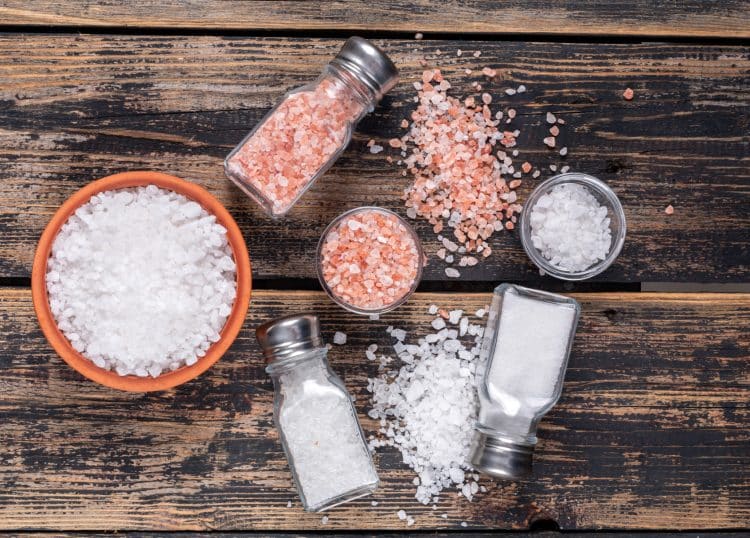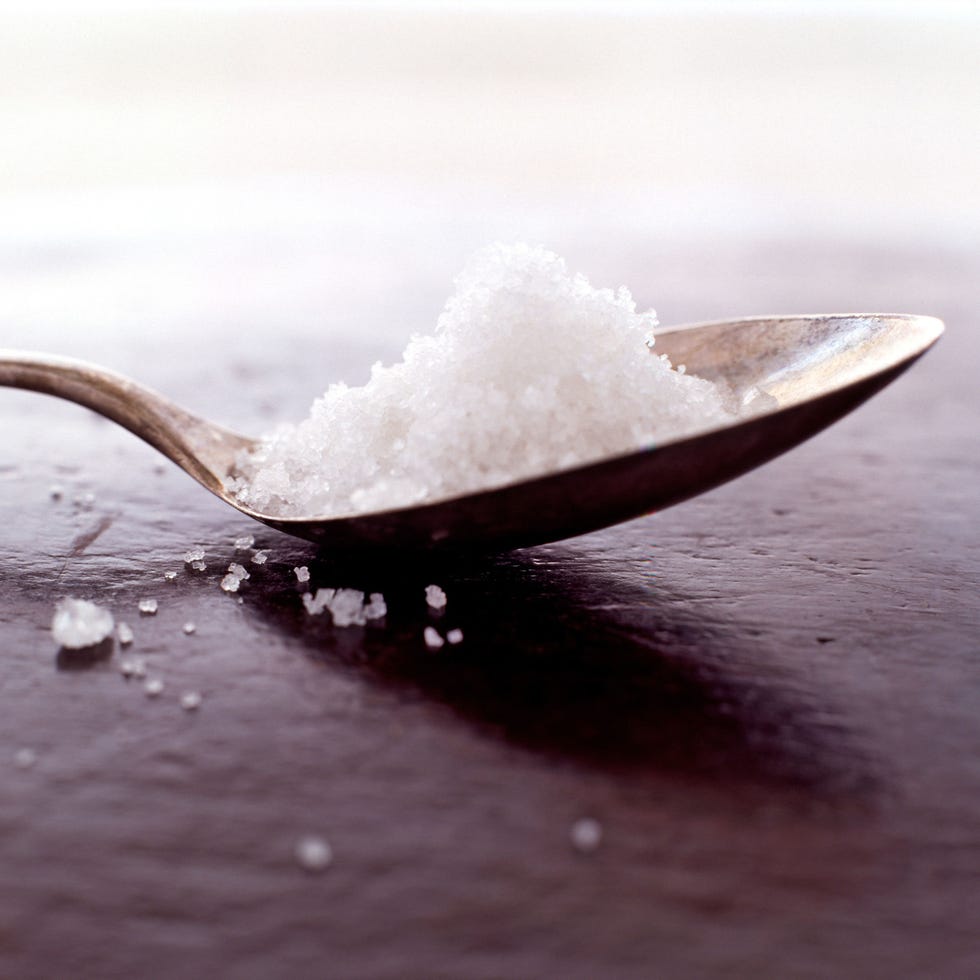Does salt affect your ability to lose weight? Can a salty diet stall your weight loss efforts, or is it just a myth? If you’ve been trying to shed pounds and heard that reducing salt could be the secret, you may be wondering: Is salt bad for weight loss? The answer isn’t as straightforward as you might think. While salt itself doesn’t directly contribute to weight gain, its effects on your body can influence how your weight fluctuates, especially when it comes to water retention and bloating. In this article, we’ll explore whether salt truly hinders weight loss, how much salt is too much, and how to balance it in your diet for optimal health.

The Link Between Salt and Weight Loss
Salt, or sodium, is an essential mineral for our body. It helps maintain fluid balance, supports nerve function, and regulates blood pressure. However, many people believe that reducing salt intake can speed up weight loss. While too much sodium can cause your body to retain water, it doesn’t directly affect fat loss. Understanding this balance is key to answering the question of whether salt is truly bad for weight loss.
The Role of Salt in Water Retention
The primary way salt impacts your weight is through water retention. Sodium draws water into your bloodstream, which can cause your body to hold onto excess water. This may result in temporary weight gain, making you feel bloated. However, this is not fat gain, and once the excess salt is flushed out of your system, this water weight will typically disappear.
For those trying to lose weight, water retention can be frustrating. It may mask your actual progress on the scale, making it seem like you’re not losing weight, even if you’re on track. Reducing sodium intake can help manage water retention, but this won’t help burn fat directly.
Does Salt Cause Fat Gain?
There’s a common misconception that eating salt leads to fat gain. The truth is that sodium doesn’t contribute to storing fat. Fat gain occurs when you consume more calories than your body burns. If you maintain a healthy, calorie-controlled diet, salt doesn’t directly interfere with fat loss. However, if excessive salt consumption leads to overeating or unhealthy food choices, it could indirectly slow down your weight loss.
How Much Salt is Too Much?
The amount of salt you consume each day plays a crucial role in how it affects your body. The recommended daily intake of sodium for an average adult is about 2,300 mg, which is equivalent to one teaspoon of salt. However, most people consume much more than this, leading to potential health problems like high blood pressure and water retention.
Reducing Sodium for Weight Loss
If you are trying to lose weight, it’s a good idea to limit your salt intake to help reduce bloating and support a more accurate tracking of your weight loss. But reducing salt doesn’t mean cutting it out entirely. Your body needs sodium to function properly. Instead, focus on moderating your intake and choosing healthier sources of sodium, such as natural foods, instead of processed or packaged foods, which often contain high amounts of hidden salt.
Tips for Cutting Back on Salt:
-
Avoid processed foods: Canned soups, frozen meals, and fast food are often packed with sodium. Opt for fresh fruits, vegetables, and whole foods.
-
Read labels: Check food labels for sodium content and look for lower-sodium alternatives.
-
Cook at home: By preparing meals at home, you can control the amount of salt you add.
-
Use herbs and spices: Replace salt with flavorful herbs and spices to add taste to your meals without increasing sodium.
Can Salt Help With Weight Loss?
While salt doesn’t directly cause weight loss, it can support your body in other ways that may indirectly help with your weight loss goals. For instance, sodium helps with proper hydration, which is essential for fat metabolism. Drinking enough water, especially with a balanced amount of sodium, ensures that your body can function optimally during your weight loss efforts.
Some people even recommend drinking water with a pinch of Himalayan pink salt to support hydration and help balance electrolytes. This can help prevent dehydration, especially when following a low-carb diet, which can lead to increased water loss.
Should You Avoid Salt Completely While Trying to Lose Weight?
It’s important to understand that eliminating salt completely is not necessary for weight loss. In fact, sodium is vital for your body’s functions, including nerve and muscle function. Cutting out all salt can lead to an imbalance in your electrolytes and may even cause issues like headaches, fatigue, or muscle cramps. The key is moderation. Reducing your salt intake to healthy levels will help you avoid excess water retention while still providing your body with the sodium it needs to operate.

How to Use Salt Wisely for Weight Loss
While high sodium intake may lead to temporary weight gain due to water retention, the right amount of salt can be part of a healthy weight loss plan. Here’s how to manage salt in your diet for the best results:
1. Focus on Whole Foods
Whole foods such as fresh fruits, vegetables, lean proteins, and whole grains naturally contain less sodium than processed foods. These foods are not only lower in sodium but also provide essential nutrients that support weight loss.
2. Drink Plenty of Water
Staying hydrated is key to weight loss, and water helps flush out excess sodium from the body. Drinking plenty of water throughout the day can help reduce bloating and improve your metabolism.
3. Balance Your Electrolytes
If you’re consuming less salt, make sure you’re getting enough potassium and magnesium, which are also important electrolytes that support hydration and proper muscle function. Foods like bananas, leafy greens, and avocados are great sources of potassium.
4. Use Salt in Moderation
A pinch of salt can enhance the flavor of your meals without leading to excessive sodium intake. Opt for a healthier variety like Himalayan pink salt, which contains trace minerals and may offer additional health benefits.
FAQ: Common Questions About Salt and Weight Loss
1. Does salt cause weight gain?
Salt itself doesn’t cause fat gain, but it can lead to water retention, which can make you feel bloated and heavier than you actually are. Once the excess sodium is flushed out, the water weight typically disappears.
2. Can I eat salt during weight loss?
Yes, you can still eat salt while trying to lose weight, but moderation is key. Too much salt can cause bloating and hinder your ability to track your true weight loss progress, but a small amount of salt is essential for proper body function.
3. What happens if I eliminate all salt from my diet?
Eliminating all salt can lead to electrolyte imbalances and other health issues like fatigue, muscle cramps, and headaches. It’s important to consume salt in moderation to avoid these effects while still supporting weight loss.
4. Is pink salt better than regular salt for weight loss?
Pink Himalayan salt contains trace minerals that regular table salt lacks, but both types of salt contain similar amounts of sodium. Pink salt may offer some additional health benefits, but it’s still important to consume it in moderation.
5. How does sodium affect fat loss?
Sodium doesn’t directly affect fat loss. However, it can influence water retention, which may temporarily obscure your weight loss progress on the scale. By reducing sodium intake, you can minimize bloating and track your weight loss more accurately.
6. Should I avoid salty foods completely if I want to lose weight?
No, you don’t need to avoid salty foods completely. Instead, aim for a balanced approach. Reducing your intake of processed foods and using salt in moderation can help reduce bloating while still providing your body with the sodium it needs for optimal health.
Finding Balance With Salt
Salt doesn’t directly hinder weight loss, but it can affect how your body handles water. By moderating your salt intake, you can reduce bloating, prevent unnecessary water retention, and ensure you’re not masking your weight loss progress. The key to successful weight loss is a balanced approach—consuming the right amount of salt, focusing on whole foods, staying hydrated, and maintaining a calorie deficit. Always remember that weight loss is a gradual process, and small, sustainable changes are the best way to reach your long-term goals.